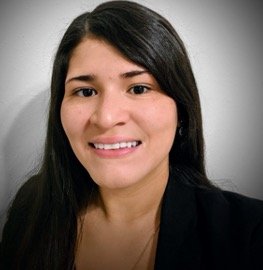
Joanna Castaneda
Degree Year: 2015
Q: When did you join the M.S. in Forensic Science and when did you graduate?
A: I was a student at SU from August 2014 - December 2015.
Q: Why did you choose the M.S. in Forensic Science at Syracuse University?
A: As an aspiring forensic scientist at the time I chose to pursue my MS in Forensic Science degree at SU because I was intrigued by the vast forensic disciplines within FNSSI and I wanted to gain exposure in different forensic disciplines before choosing one discipline to pursue. I felt SU provided the best opportunities for me to accomplish this.
Q: Who did you do your internship/research and how was it?
A: I actually participated in both an internship and graduate research. I did research under the supervision of Dr. Michael Marciano studying forensic DNA mixture deconvolution and I was an intern at the Office of Chief Medical Examiner of the City of New York within their Forensic Biology Department. In research I gained necessary critical thinking skills when having to troubleshoot issues that arose during experiments. In my internship I learned the daily ins and outs of how a forensic laboratory operates and the importance of teamwork in a professional setting.
Q: Where are you working at the moment?
A: I recently began a new position at US Customs and Border Protection in Houston, TX as a (Forensic) Chemist.
Q: How do you apply the knowledge acquired in the M.S. in Forensic Science in your work?
A: Much of my graduate coursework I have applied to in my career such as Quality Assurance is a necessity of any forensic laboratory and having the knowledge prior to being a practicing forensic scientist was very helpful and I am, grateful that class was a requirement for my degree. I also have prior professional experience working in crime scenes and SU fostered working in teams and communicating with one another, something that is necessary when assigned to a crime scene.
Q: What was a major advantage of having done your master's at Syracuse that has helped you at your current position?
A: Obtaining my MS in Forensic Science degree at SU prepared me for a career as a forensic chemist because many of the FNSSI faculty had prior experience working in a crime laboratory or were currently employed as a forensic scientist. I felt that having that type of faculty support helped me hone my laboratory and critical thinking skills necessary to thrive at the professional level.
